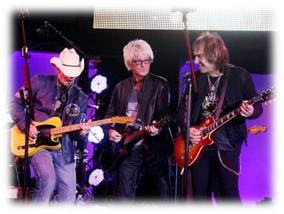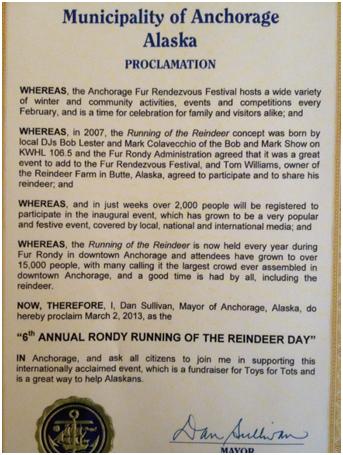These days, the more common question that everyone is asking is: “Is Rock Radio Dead?” But I think that misses the point because any established brand, format or individual station can be successful in today’s environment – but not by mailing it in.
For me, this new phase of the debate restarted a few weeks ago when I was headed for my first Country Radio Seminar in Nashville.
 First, Arbitron’s Jon Miller presented amazing findings about the growth of Country radio, and concluded that much of its gains have come at Rock radio’s expense. That started the usual flurry of “Oh, oh – is Rock radio in trouble?” questions. Paul Heine of Inside Radio contacted me for a quote. I did my best.
First, Arbitron’s Jon Miller presented amazing findings about the growth of Country radio, and concluded that much of its gains have come at Rock radio’s expense. That started the usual flurry of “Oh, oh – is Rock radio in trouble?” questions. Paul Heine of Inside Radio contacted me for a quote. I did my best.
And then I arrived in at CRS, and the first thing I heard was, “Wow, REO Speedwagon absolutely rocked the house on the riverboat last night.”
REO at CRS?
And yet, there they were – Kevin Cronin and the band – jamming with Brad Paisley on the General Jackson showboat lighting up the crowd on the Cumberland River. And all those Country programmers went nuts. And in Cronin’s words, “It’s all country music. It’s good songs. It’s all country music.”
So what are the differences between what’s going on with the Country format versus the scene in Rock radio?
Well, there is no equivalent to CRS because there is simply no gathering of Rock PDs, DJs, performers, and label executives. Right there, you’ve got a problem because that tells you there’s no organized community in Rock radio, but instead, a bunch of independent tribes, cults, and sects each going their own way and doing their own thing. On the surface, that’s not a bad thing, but the lack of a unified organization and gathering sets Rock radio back and limits its power as a force of music exposure and influence.
The other difference is well-known to most radio observers and it’s as simple as this: Country stars get it. They show up, hang out, thank radio, sign autographs, and put themselves out there. Rock stars? You’re unlikely to even get the “show up” part because outside of baby bands on the come, few established acts are inclined to be present to acknowledge their fan bases and the megaphones (that is, radio stations) that have dutifully played their songs and albums, not to mention promoted their concerts and other activities.
So where does that leave Rock radio – torn between showcasing its personality, trying to find new music that matters, and getting caught in between Classic Rock on the one side and a renewed, reenergized Alternative on the other?
In an interview with Forbes’ Michele Catalano the other day, I attempted to frame the conversation and the dilemma that faces Rock – and perhaps all radio formats at this point in time. The problem isn’t Country or PPM or even a lack of new music to play. The challenge is in redefining the purpose of these stations, and how they can stand out and be truly remarkable in an ever-changing, increasingly competitive environment.
As I discussed in Forbes, it is about commitment to the local community, live and local talent, and strategically breaking the rules. When you look at some of the most successful Rock stations still thriving in 2013, these are the common elements that often define their success. Stations that represent their communities – whether we’re talking about their physical hometowns or the tribes the worldwide web have connected together – have long realized that just playing great songs with fewer interruptions is not a formula for long-term success.
And while some pure-plays – like Slacker – are featuring personalities, as Catalano points out, “There’s still one thing missing: the human connection. Even if a brand like Slacker Radio has actual human DJs, the personal connection one has with a local DJ is missing and that’s where FM rock radio still has the upper hand.”
Of course, that’s if they haven’t sold out their local roots and their brands to rampant voicetracking, incessant syndication, and simply playing the hits with no curation, guidance, passion, or context.
 It requires innovation, a word that is strangely missing from most radio strategy conversations. Whether the incredible community promotions staged brilliantly by multiple members of the WMMR team, Men’s Room beer made famous by that infamous afternoon drive show at KISW, or in a smaller setting, KWHL/Anchorage’s Bob Lester’s “Rendezvous Festival – the Running of the Reindeer” event that now draws more people than the start of the Iditarod, these stations and their personalities are what “people are talking about.”
It requires innovation, a word that is strangely missing from most radio strategy conversations. Whether the incredible community promotions staged brilliantly by multiple members of the WMMR team, Men’s Room beer made famous by that infamous afternoon drive show at KISW, or in a smaller setting, KWHL/Anchorage’s Bob Lester’s “Rendezvous Festival – the Running of the Reindeer” event that now draws more people than the start of the Iditarod, these stations and their personalities are what “people are talking about.”
That’s the essence of social media, and it goes to the heart of what makes radio brands successful in 2013. As Seth Godin reminded a packed house at the recent Borrell conference (more on that later this week), being remarkable means doing things that people remark about.
Does that sound like your Rock station? As Seth might ask, if it went off the air for a day, would anyone really care? Is it providing experiences and value that consumers just can’t get anywhere else?
That’s the conversation we need to be having about Rock radio. Sure, having our own gathering would help and more cooperation from our stars would be most welcome. But what we really need is to look our brands right in the eye and ask ourselves whether they are truly providing unique and remarkable experiences.
We need to raise our games. As Seth might ask, are we making art or are we scheduling perfect logs?
My bet is that if you examine the Rock stations that are still around, their success was partially due to creating those great experiences for fans. They are high-flying stations, not afraid to strategically bend a few rules, to try new things, and to stretch the boundaries of the format. And as for the Rock stations that have been replaced by Amp and Nash formats, chances are they were spending most of their time just polishing the furniture rather than innovating and growing. When radio was essentially the only game in town, stations could get away with that.
Not any more.
- A 2020 Lesson?It Could All Be Gone In A Flash - April 24, 2025
- How AI Can Give Radio Personalities More…PERSONALITY - April 23, 2025
- Can Radio Afford To Miss The Short Videos Boat? - April 22, 2025




Is it also possible we’re not getting great new music to present, let alone presenting it properly or have a station to present it on?
Clark, always a combination of a lot of things, but leadership in the format and guiding the audience is what we should be about. Thanks for the comment.
I thin all of Fred’s points apply to all formats, not just rock. Taken as a whole, only conservative talk and possibly sports seem to be compelling enough to really matter in the way radio used to matter.
I’m becoming more and more convinced that structure is a big part of the “remarkableness” problem. When one or a few people make all of the key decisions, very little that is remarkable can surface, not matter how smart, talented and dedicated those people are. Being remarkable requires innovation and risk – two things radio seems averse to currently.
Much has been made of Eric Rhodes’ flat out wrong comments regarding radio’s future in the dashboard. But the slacker example is telling – its not really different from the mailed it in voicetracked dayparts that are mainstays of way too many radio stations. He may prove more prescient than we think.
I’ll go so far as to say that radio is nearing a tipping point. If someone, really a bunch of people in authority don’t start worrying seriously about the future of the medium…then start taking some risks – well the current status quo is the riskiest move available IMO.
Bob, it IS more about content and being remarkable than it is about platforms and technology. It is easy to get caught up in the digital gadgetry and miss these larger truths. Thanks for the reminder and the comments.
So true Fred, so true!! Lots of folks caught up in the distribution methods, and not enough in the entertainment (aka – content -)coming from said technology.
Thanks, Troy. We’ll tackle more of that tomorrow as we return to the exciting topic of radio and the “connected car.” Thanks for contributing.
love this quote from Jack Dorsey (head of twitter)on 60 Minutes about competition: “You can worry about the competition, you can constantly look in your rear view mirror and you constantly look around and really not notice the road ahead of you…or you can focus on what’s ahead of you and drive fast. Faster than everyone else”. I encourage everyone to watch his segment on 60 Minutes and revisit how we approach our industry.
The best view is always out the windshield. Thanks for the great observation, Jim.
Getting back to your FIRST point, Fred…Rock radio really DOES NEED a “fan fest,” similar to what Country music has. I disagree with you about rock bands NOT wanting to take part in something like that! I think the majority would see it as a blast…because the biggest buzz they get(well ALMOST the biggest buzz)…is from fans!
And YOU’RE the perfect guy to spearhead that movement. The “Long Live Rock-Fest”? I’m intrigued about the possibility!
JC, I’ll put in on my list. Seriously, Rock could use its own event, and I would hope that you are right – that we’d get participation from the powers that be in the genre. Would love to be a part of it. Thanks for the comment.
Well, Fred….you know I was a rock GM for a lot of years and we saw each other at CRS…so I do know what I speak.
The most important part and difference are the bands..you hit the nail on the head. They’re so friendly and accomidating in country and staggeringly different than rock.
The differences are palpable, and while there’s more to it than accommodating artists, my belief is that a better relationship between station-listener-band could go a long way to foster growth and brand building. And after seeing the vibe and energy at CRS, Rock would benefit greatly from that type of atmosphere. Thanks, Dave.
“Infamous”
We will take any praise from you Fred any day…
Always great to hear from you, Miles. Best on your success.